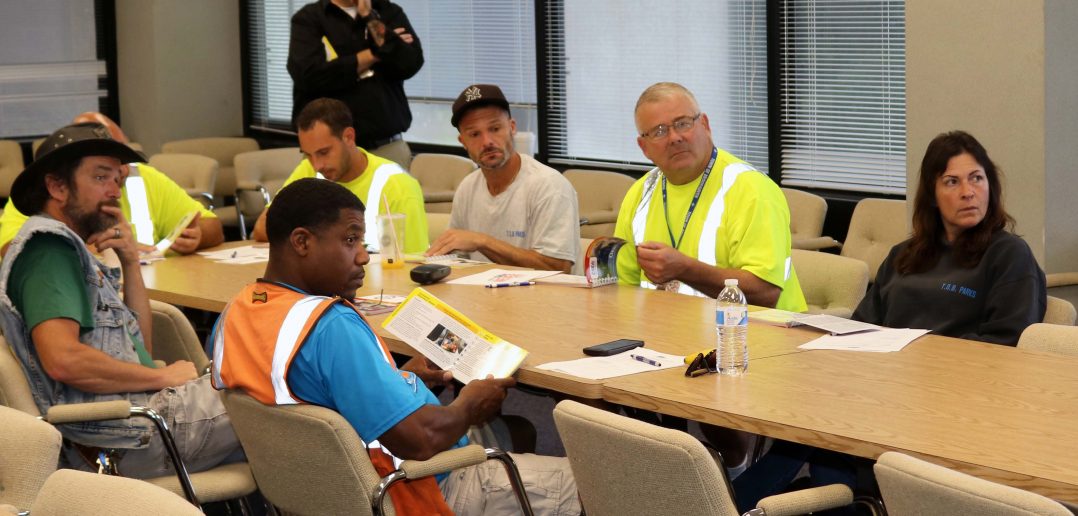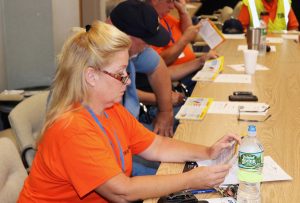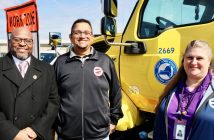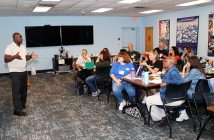BROOKHAVEN — CSEA peer trainers are doing their part to keep our members informed of the most practical safety techniques, one class at a time.
Peer trainers in the Town of Brookhaven are no exception.
The town’s most recent Peer-to-Peer Training class is the Clean-up Safety course. In this class, members learn how to prevent injuries and illnesses due to hazards and hazardous materials they encounter during natural disasters and routine clean-up work.
CSEA’s Peer Trainer Program offers safety courses so our members can learn proper work site safety practices from their peers – the people who work with them side-by-side, every day. It’s also a winning formula for employers. Not only are workers properly trained in skills that help us do our jobs more safely, but it’s done at no cost to the employer. The program also allows workers to form partnerships with management.
Our members regularly encounter a number of dangerous materials while fulfilling their job responsibilities such as removing dead animals and vermin and blood-borne pathogens (infectious microorganisms that cause disease in humans), which they are exposed to through needles and other sharp objects that they encounter during clean-up work.

Hoffman
“This class was originally supposed to focus on waste management, with a focus on garbage collection,” said Tim Hoffman, a CSEA Town of Brookhaven activist and peer trainer. “Now, the class includes storm and construction cleanup, tree removal and disposal of construction debris.”
It was deemed necessary to include the additional safety practices because of what members have been encountering during disaster situations.
At the time of a disaster, residents with damaged property need to clean out their homes. In Brookhaven and many other communities, members and other workers employed by parks and public works departments, highway departments and waste management are also often tasked with clearing debris.
“Residents will put anything and everything out there, so they don’t have to pay for a Dumpster,” said Hoffman. “We get washing machines, refrigerators, dressers and whatever else gets damaged.”
The opioid epidemic has also increased the need for the Clean-up Safety course.
“Our members find used needles and all kinds of drug paraphernalia in the parks, dead ends and cul-de-sacs,” said Hoffman. “People are also throwing prophylactics out on the streets.”
“We needed to have this course so we can discuss where we’re lacking and how we can improve on our clean-up duties,” said Hoffman. “We also need for administration to get a full understanding of what the work force is going through.”
Peer trainers insist that it’s important for workers to not get stuck in a rut in terms of how they perform their job responsibilities.
Just because a specific task has always been handled a certain way doesn’t mean it always has to be.
“Building on knowledge keeps people from getting complacent in their work environment,” said Hoffman. “Complacency is when injuries happen. Just like CSEA works to make residents aware of safety precautions through our ‘Don’t Zone Out’ and ‘Slow Down to Get Around’ campaigns, we want our members to be aware of their environment and be safe.’
— Wendi Bowie






